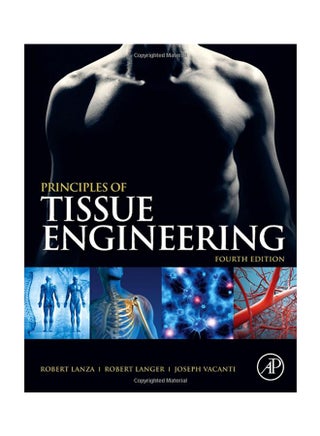| عن المؤلف | Robert Lanza, M.D. is currently Chief Scientific Officer at Advanced Cell Technology, and Adjunct Professor of Surgical Sciences at Wake Forest University School of Medicine. He has several hundred scientific publications and patents, and over 30 books, including Principles of Tissue Engineering (1st through 4th Editions), Methods of Tissue Engineering, Principles of Cloning (1st and 2nd Editions), Essentials of Stem Cell Biology (1st and 2nd Editions), XENO, Yearbook of Cell & Tissue Transplantation, One World: The Health & Survival of the Human Species in the 21st Century (as editor, with forewords by C. Everett Koop and former President Jimmy Carter), and Medical Science & the Advancement of World Health. Dr. Lanza received his B.A. and M.D. degrees from the University of Pennsylvania, where he was both a University Scholar and Benjamin Franklin Scholar. He is a former Fulbright Scholar, and studied as a student in the laboratory of Richard Hynes (MIT), Jonas Salk (The Salk Institute), and Nobel laureates Gerald Edelman (Rockefeller University) and Rodney Porter (Oxford University). He also worked closely (and coauthored a series of papers) with the late Harvard psychologist B.F. Skinner and heart transplant pioneer Christiaan Barnard. Dr. Lanza's current area of research focuses on the use of stem cells in regenerative medicine. Robert Langer received honorary doctorates from the ETH (Switzerland) in 1996 and the Technion (Israel) in 1997. Dr. Langer is the Kenneth J. Germeshausen Professor of Chemical and Biomedical Engineering at MIT. He received a Bachelor's Degree from Cornell University in 1970 and a Sc.D. from MIT in 1974, both in chemical engineering. Dr. Langer has written 590 articles, 400 abstracts, 350 patents, and has edited 12 books.Dr. Langer has received over 70 major awards, including the Gairdner Foundation International Award, the Lemelson-MIT prize, the American Chemical Society (ACS) Polymer Chemistry and Applied Polymer Science Awards, Creative Polymer Chemistry Award (ACS, Polymer Division), the Pearlman Memorial Lectureship Award (ACD, Biochemical Technology Division), and the A.I.Ch.E's Walker, Professional Progress, Bioengineering, and Stine Materials Science and Engineering Awards. In 1989, Dr. Langer was elected to the Institute of Medicine and the National Academy of Sciences, and in 1992 he was elected to both the National Academy of Engineering and to the National Academy of Sciences. He is the only active member of all 3 United States National Academies. Dr. Joseph P. Vacanti received his M.D. degree from the university of Nebraska in 1974. He received his training in general surgery at the Massachusetts General Hospital from 1974 through 1981 and in pediatric surgery at The Children's Hospital, Boston from 1981 through 1983. He then received clinical training in transplantation from the University of Pittsburgh. He spent two years in the laboratories of Dr. M. Judah Folkman working in the filed on angiogenesis from 1977 through 1979. Upon completion of his training, Dr. Vacanti joined the staff in surgery at children's Hospital in Boston and began clinical programs in pediatric liver transplantation and extracorporeal membrane oxygenation. In the laboratory, he continued studies in and began work in the filed of tissue engineering in 1985. Dr. Vacanti is now John Homans Professor of Surgery at Harvard Medical School, Visiting surgeon at Massachusetts General Hospital, director of the Wellman 6 Surgical laboratories, director of the Laboratory of Tissue Engineering and Organ Fabrication and Director of Pediatric Transplantation at Massachusetts General Hospital, Boston. He has authored more than 120 original reports, 30 book chapters, and 197 abstracts. He has more than 25 patents or patents pending in the United States, Europe, and Japan. |
استرجاع مجاني وسهل
أفضل العروض

